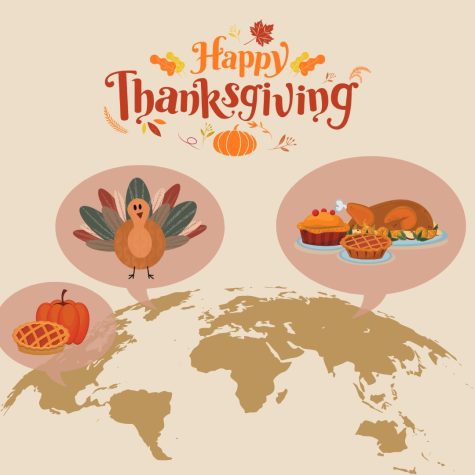After all, when did celebrating birthdays became a thing?
Are you a “my birthday lasts a month” kind of person, or a “my birthday? I forgot” one?
Whether celebrated or not, birthdays hold an intrinsic meaning that we grow up with but rarely question the origin of. So when did birthdays become a cultural thing?
You might wonder why I’m randomly taking you through this peculiar reflection. Well, Feb. 16 is my birthday, and I’m the “ever-lasting birthday” person. So naturally, I added two and two together.
According to CBS, Oct. 5 is considered the most common birthday date in the U.S. Considering we are still in the first half of February, there’s a high chance most of you haven’t gotten older this year yet.
So, on your next birthday, you will know a bit more about the history of celebrating birthdays and why it involves all those things we are used to.
- The history of birthday celebrations
As with every tradition, the celebration as we know it today results from many historical occurrences. According to Todd Van Luling for HuffPost, scholars have pointed out the earliest known mention of a birthday celebration was in the Bible as a reference to a Pharaoh’s birthday (around 3,000 B.C.E.). Egyptologist Dr. James Hoffmeier believes this is a reference to the coronation date, since that would have marked the Pharaoh’s “birth” as a god.
Another part of history that influenced birthdays was the development of religious practices. Taufiq Zaman wrote for LinkedIn that pagans believed evil spirits lurked on days of significant changes, such as a day where one ages a year older. The Greeks also believed each person had a spirit attend their birthday to keep watch.
The Christian Church considered birthday celebrations evil for the first few hundred years of its existence for two reasons: the belief that humans were born with an “original sin,” and the early belief birthdays were tied to “pagan” gods.
Researchers have noted that various groups thought the celebrations were self-centered and materialistic, took attention away from God and were a bad influence on children.
According to HuffPost, this perspective only changed around the 4th century, when Christians began celebrating the birthday of Jesus as Christmas.
Romans were the first civilization to celebrate birthdays for non-religious figures, according to Todd Van Luling. Romans celebrated birthdays with friends and families, while the government created public holidays to observe the birthdays of famous citizens.
Still, women were an exception in history, and their birthdays weren’t celebrated until around the 12th century.
Time passed, and in the 18th century, Germans had the closest to what we know of contemporary birthday parties. Kinderfeste is a german celebration held by children, or “kinder,” and it involves both birthday cake and candles.
- How Birthdays became a tradition in the U.S.
Curiously, different from other traditions, celebrating aging is not a very old American habit. Joe Pinsker of The Atlantic explains birthday celebrations became an American tradition only in the early 20th century, with early signs of middle-class parties in the 19th century.
In the mid-19th century, the way children were perceived by families changed. There was increased attention on individual children as families started having fewer of them. American children were starting to be viewed as less economically valuable as workers and more emotionally valuable as family members.
“The advantage of widely-celebrated birthdays as family occasions implemented a significant shift in the beliefs and values surrounding ordinary people,” Vyta Baselice, Dante Burrichter and Peter Stearns said in an academic article.
Besides this shift in the familiar structure, there was a significant shift in how people conceptualized time. As the 19th century progressed, the widespread production of household clocks and pocket watches made it possible for Americans to know what time it was constantly.
“And as more people followed the schedules of factories, streetcars and trains, they had more reason to watch those clocks,” Pinsker said. “As Americans became more aware of time, they also became more aware of how it passed in their own lives.”
Howard Chudacoff revealed our intense age-consciousness developed only gradually. Consequently, the precision and attention to time linked the process of industrialization to the observance of birthdays, according to Derek Thompson.
- The Mindset of Birthdays in the U.S.
Even if there’s a lot of good on birthdays, there is also a mindset that followed the beginning of this tradition.
“Recognition of birthdays heralded the growing individualism that began to crest in Western culture during the eighteen century,” Baselice, Burrichter and Stearns said.
Besides individualism and consumerism, research touches on how birthdays could be the beginning of exaggerated anxiety related to life plans.
A birthday can be anxiety-provoking since it “provides a milestone by which individuals can compare their status, accomplishments [and appearance] with other people who are the same age,” historian Chudacoff said in his book. “It’s kind of like a train: Are you ahead of time, on time or behind time?”
In fact, according to Pinsker, the era when birthdays exploded was also when the terms ‘on time, ahead of time, behind time’ became a concept.
A century later, cultural expectations have loosened around when and whether people should reach life milestones. Nowadays, talks about mental health and well-being are also more prominent — but the capitalist pressure associated with being “behind time” has persisted.
- Curiosities about the cake, the candles and the song
“The way we celebrate today is a mishmash of traditions,” Lee Humphreys said in a journal article.
At least in my family, birthdays come followed by cakes with candles. The birthday cake can likely be traced back to ancient Roman birthday rites — though some accounts indicate Americans used to be just as likely to celebrate with fruit.
Van Luling explained that, for quite some time, sugary cakes were only available to high-class people due to the luxury and scarcity of the necessary ingredients before the industrial revolution allowed quicker production of ingredients and products like cakes.
The candles came from the Greeks. They offered moon-shaped cakes to Artemis as a tribute to the lunar goddess. To recreate the radiance of the moon and her perceived beauty, Greeks lit candles and put them on cakes for a glowing effect.
Zaman said blowing out candles and making a wish was a part of German celebrations originally invented by bakers. Kids got one candle each year they’d been alive, plus another to symbolize the hope of living for at least one more year.
So now, we have the cake and the candles — turn off the lights and sing, “Happy Birthday to You.” In 1893, Patty Hill and Mildred J. Hill wrote the base of what we know today, a song they called “Good Morning to All.”
The version we all know today came from a songbook published in 1924 by Robert Coleman. Coleman’s version added a few extra lyrics to Hill’s original song and quickly overshadowed the original lines.
Surprisingly, the song is not far from having completed its first century, and it’s the most recognizable song in the English language, according to the Guinness Book of World Records.
So on your next birthday, when friends and family “come together and congratulate you for surviving another year,” as Van Luling might humorously say, you’ll know the reasons behind the traditions and even behind that little anxiety.
My advice? As a gift to yourself, celebrate the day as you want, with whoever you want, doing what you like. Traditions are incredibly important to keep the history going, but they’re also made to show that too many people are doing the same thing. So, do what makes you happy!
Happy birthday to my fellow February people!










